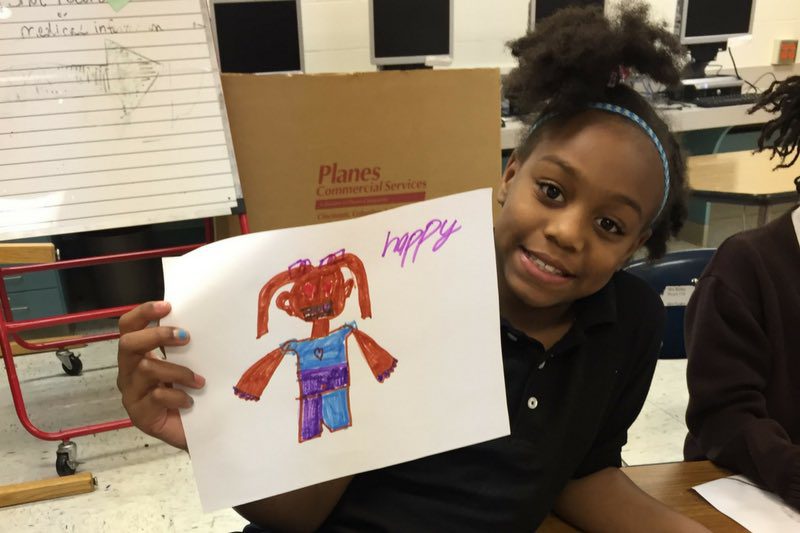May is Mental Health Awareness Month, and has special significance for the Joseph Maley Foundation HOPE program. HOPE – Health through Outreach, Personal Perspectives and Engagement- engages individuals in valuable discussion and activities surrounding mental health. The program was created to change the way our community talks about this important topic, reducing the stigma associated with mental health issues.
HOPE Director Jen Money-Brady shares her thoughts about the program’s unique approach, as well as how HOPE will continue to grow in the future.
How is JMF’s approach to mental health through HOPE unique?
JMF’s mission, “serving children of all abilities” allows HOPE to tailor lessons to meet the exact needs of the classroom, school, or community in which the programming or speaker is provided. The ability to mold HOPE to fulfill needs in a specific schools allows the message to be heard by everyone, and for the acceptance of mental health wellness to be cultivated in each student. Beyond the unique design for each school, is JMF’s ability to make our lessons, activities, and speakers completely interactive and engaging for all participants, which means students remember the lesson because they’ve seen it differentiated for their learning styles and needs.
How does HOPE partner with schools who may have already started the process of addressing mental health needs?
The input of all faculty/staff and any ongoing initiatives at each school are included in the planning discussions and the needs assessment the Joseph Maley Foundation works through before HOPE programming begins. Often, we find that a school knows that one challenge exists, but our needs assessment or conversations with multiple stakeholders in their school community (including students) sheds light on many areas for HOPE to encourage growth in a school or organization.
How will HOPE continue to evolve in the future?
The sky is the limit for HOPE! As more individuals talk about mental health and wellness, we are beginning to see more energy and understanding that fosters a greater commitment to doing more for the mental health of all students, faculty, and families. HOPE, like other JMF programs, builds on itself year-after-year. When HOPE programming is offered consecutively, from year one to year two, we are able to focus on the lessons already presented and adapt new lessons for new topics, books and—my favorite—new speakers to truly encourage dialogue and an interaction that is ideal for students to understand mental health in their community.
